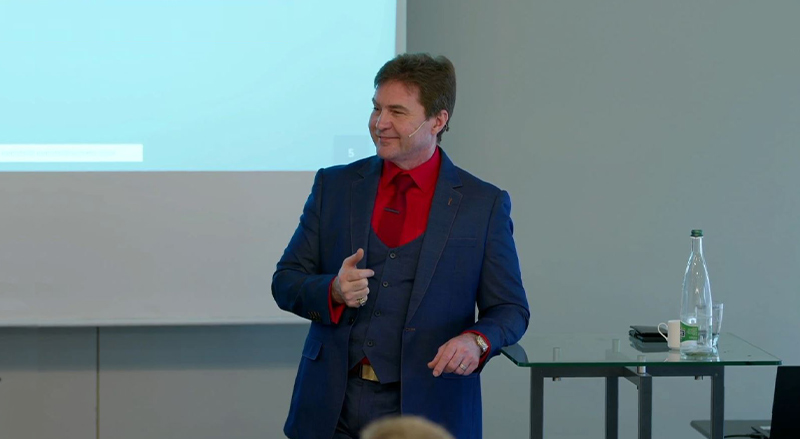The Bitcoin Masterclass (Zurich) Day 1
Dr Craig S. Wright, Chief Scientist at nChain, recently held the third edition of his Bitcoin Masterclass series at an exclusive venue in Zurich, Switzerland. The Masterclass course forms part of a monthly series aimed at helping attendees understand the fundamentals of Bitcoin and the technology behind it.
The Bitcoin Masterclass series will give you a comprehensive overview of Bitcoin’s history, theory and design. Wright discussed the future of Bitcoin and the unbounded scalability of nChain’s blockchain solutions, focusing on accounting and mapping transactions on-chain.
In the second session, Dr Wright discussed general ledgers and controls and asked members of the audience how triple-entry accounting and mapping transactions on-chain can be used in real-life use cases.
Ownership fights and art resolved via blockchain
Wright gave the example of a case where people are fighting over the ownership of an art piece. He said that by adopting blockchain-based transactions as the standard practice, art auction companies such as Christie’s could accelerate the adoption of this technology in their industry.
These auction houses hold significant market positions due to their trusted reputation, however, the BSV blockchain introduces the possibility of peer-to-peer economies that eliminate the reliance on trusted intermediaries, opening up new avenues.
Wright noted that auction houses are likely to serve multiple purposes and that removing them as intermediaries by implementing blockchain will not make them obsolete. He added that the same applies to auditors, accountants, and other experts. In the emerging blockchain-powered economy, their roles would evolve, but they would still contribute value and remain essential for some tasks, he said.
Blockchain is not a panacea
Wright again reiterated the point that blockchain technology is still wholly dependent on humans, the information they decide to put on-chain, and how they make use of it. He added that there are also certain Acts of God which cannot be avoided – such as a flood or earthquake.
Wright gave the example of a piece of art which is lost in a warehouse fire or lost in a transportation accident. While blockchain can track this art piece, nothing is stopping it from being lost or stolen. However, he noted that having one provably true data set that everyone can look at, attest to, and do what they need to with will also create substantial time and monetary savings.
He closed the session by discussing how certain items which do not have an expiration date, such as gold and diamonds, stand to benefit most from blockchain technology. He noted that if every gold bar or diamond was tokenised, it would be significantly easier to track inventory and notice theft.
